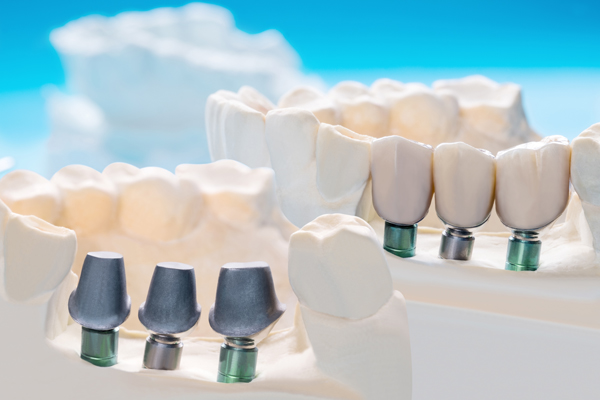4 Periodontal Treatments From Your Dentist

Gum disease is very serious, and without treatment, it can be detrimental to one's overall health. The severity of the infection determines the treatment options. When experiencing any signs of gum disease, it can be helpful to review the following information to prepare for what to expect from the treatment process.
Periodontal treatment for gum disease
Outlined below are four different gum disease treatment options that a general dentist may offer.
Deep dental cleaning
A deep dental cleaning is one of the most common periodontal treatment options used for gum disease. It is more intense than a routine dental cleaning with a hygienist. Instead of cleaning the teeth and gum line, the hygienist or dentist will go deeper beneath the gum pockets to ensure that plaque and tartar are removed. The removal of plaque and tartar can remove the infection and rid the mouth of the gum disease.
Scaling and root planing
Another periodontal treatment option for gum disease is scaling and root planing, which is another cleaning procedure performed by a general dentist. As the gums are pulled back to reach the infection, scaling and root planing can cause some discomfort, so medication may be administered.
Scaling involves the removal of any plaque or tartar from above and below the gum line through a scraping method. Root planing tackles gum disease differently by smoothing out rough areas of the roots of the tooth. These rough areas develop due to the infection reaching beneath the tooth and gums.
Oral rinses
Oral rinses, often prescribed by a general dentist, are a simpler but effective way to treat gum disease. When gum disease is in its early stages, the infection can usually be destroyed through oral rinses and improved oral hygiene. The dentist may often prescribe an oral rinse in conjunction with another periodontal treatment option, such as a dental deep cleaning. The rinse not only kills the infection but can also prevent it from recurring.
Surgical procedures
When gum disease reaches severe stages, it can cause irreversible effects, such as receding or deteriorating gums. In this case, the general dentist may recommend a more severe periodontal treatment, such as surgery. A gingivectomy involves removing dead areas of the gums. Once the decayed areas have been removed, a gingivoplasty may be recommended to reshape or contour the gum lines.
Get started with gum disease treatment
Gum disease treatment varies depending on the individual's needs. In order to determine the appropriate course of treatment, it is necessary to undergo a consultation with a dentist. The consultation will include an examination to identify how serious the infection is. Then, a treatment plan can be put in place, which will likely include one of the options listed above. Reach out to our Middleburg office today to learn more or to schedule a consultation.
Request an appointment here: https://www.southlakedentalcare.com or call SouthLake Dental Care at (904) 512-3054 for an appointment in our Middleburg office.
Check out what others are saying about our dental services on Yelp: Gum Disease in Middleburg, FL.
Recent Posts
Anyone who has ever had gum disease knows that it can have serious consequences. If you have the signs and symptoms of this condition, you should act now and start treating it. In the early stages, it is possible to cure it and restore the full health of your gums. Waiting too long could have…
Flossing is an important component of preventive dentistry. Flossing must always accompany daily brushing. This may seem insignificant. After all, it involves running a line of floss through the thin gaps of your teeth. Even so, flossing benefits your teeth. If you want to know how valuable flossing is for preventive dentistry, here are the…
Dental implants are more secure than removable dentures. These restorations can make smiling, speaking, and eating more stable. Embarrassment and awkwardness will be non-existent once these restorations are in place. Here are the details on how dental implants can serve as solid dental replacements.Osseointegration is the process behind the strength and stability of dental implants.…
There are benefits to choosing an experienced implant dentist over one who is relatively new in the profession. Dental implants require a more complex process that involves several steps, and choosing the right implant dentist may help make the process more convenient, less invasive, and safer.It is helpful to learn more about dental implants, how…


